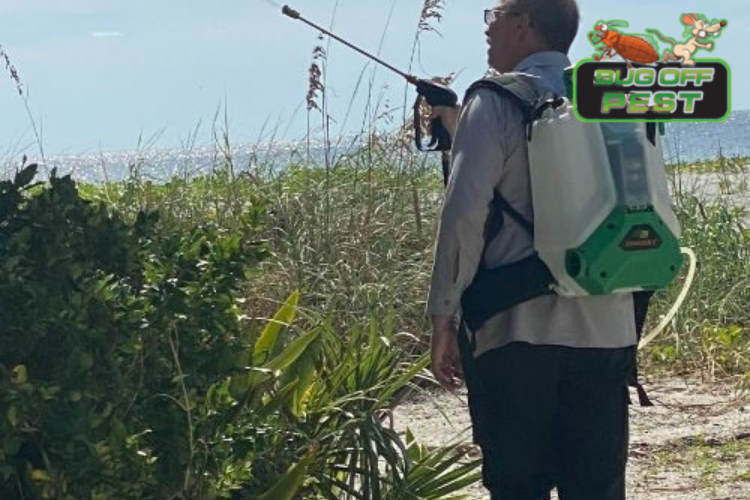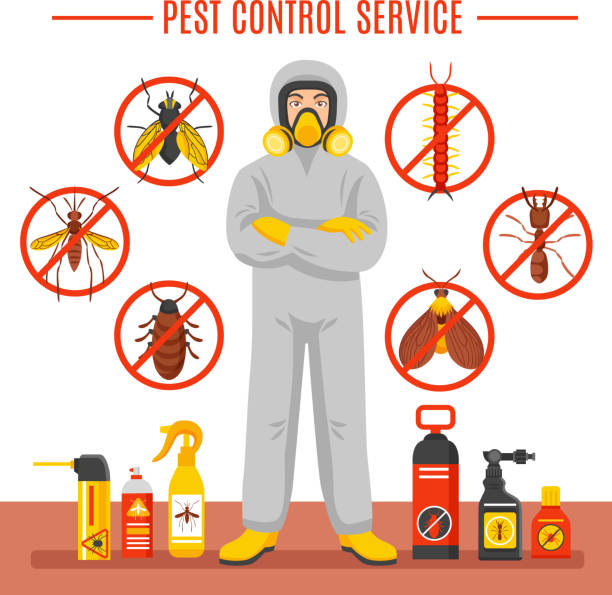Choose expert Pest Control in Port Charlotte for a clean space.
Exploring Cutting-edge Strategies and Products for Reliable Bug Control
The landscape of parasite control is advancing, noted by the development of ingenious methods and products designed to enhance efficiency and sustainability. From clever traps outfitted with innovative surveillance systems to organic techniques that utilize natural predators, these advancements offer a standard change in just how we come close to pest administration.
Smart Traps and Monitoring Equipments
Just how can modern-day technology enhance pest management? One significant development is the development of smart traps and keeping track of systems, which provide real-time data and analytics for efficient pest control. These systems make use of sensing units and cordless modern technology to identify bug activity, signaling residential or commercial property managers and pest control specialists to infestations prior to they intensify.
Smart catches are furnished with functions such as lure terminals that bring in pests and record them efficiently. These traps can be kept track of remotely, enabling for timely interventions and lessening the demand for comprehensive chemical applications. The combination of maker understanding algorithms allows these systems to separate between target insects and non-target species, boosting the accuracy of parasite control steps.
Additionally, the information collected from smart traps can be evaluated to identify patterns in insect actions and environmental factors contributing to invasions (Pest Control in Port Charlotte). This details is indispensable for creating targeted pest management strategies customized to details settings. By embracing wise catches and keeping track of systems, parasite control specialists can boost their operational efficiency and minimize the eco-friendly impact of parasite administration, inevitably causing much safer and much more sustainable methods in the industry
Biological Parasite Control Approaches
Using all-natural killers and parasites, biological pest control approaches use an eco-friendly option to chemical therapies. This technique involves the intro or enhancement of particular microorganisms that can naturally regulate bug populaces, consequently minimizing reliance on synthetic chemicals. Typical examples consist of making use of ladybugs to manage aphid infestations and parasitical wasps to target caterpillars.

Biological control can be classified into three primary strategies: classical, augmentative, and preservation. Timeless biological control entails importing natural enemies from the parasite's indigenous habitat, while augmentative control entails boosting the populace of existing natural enemies with releases. Preservation techniques concentrate on developing conditions that support these beneficial microorganisms in the community.
The performance of biological pest control depends upon comprehending the complex interactions within communities. It usually requires a thorough assessment of pest dynamics and the life process of both the parasites and their natural adversaries. While organic methods may not give prompt results like chemical options, they add to lasting pest administration and ecosystem wellness. As awareness of environmental problems expands, organic insect control techniques are increasingly acknowledged for their sustainable duty in integrated parasite management programs.
Eco-Friendly Chemical Alternatives
Green chemical choices provide a practical remedy for pest management that lessens environmental effect while effectively controlling pest populations. These alternatives are obtained from all-natural sources and are thoroughly created to target details bugs without harming useful organisms, making them a vital component of lasting bug control techniques.
Among one of the most efficient green choices are plant-based insecticides, such as neem oil and pyrethrin, which are obtained from the seeds and flowers of various plants. These materials interrupt the life cycles of parasites, minimizing their populations without the harmful effects associated with standard pesticides - Pest Control in Port Charlotte. In addition, important official source oils like peppermint and clove oil show repellent residential or commercial properties, better improving their utility Going Here in insect management

In addition, green chemical options usually damage down faster in the setting, decreasing the danger of dirt and water contamination. This particular aligns with the enhancing customer need for lasting techniques in farming and city bug control. As study continues to advance, the growth of ingenious green formulations will even more enhance effectiveness and broaden application areas, enabling pest administration experts to embrace greener, a lot more liable approaches in their practices while protecting human health and wellness and the atmosphere.
Scent Disruption Strategies
One more ingenious technique in lasting bug administration is using scent interruption methods. These techniques make use of the all-natural chemical signals, or scents, that bugs utilize for communication, especially in mating behaviors. By disrupting these signals, insect populations can be efficiently taken care of without considering harmful chemicals.
Pheromone traps are generally utilized in this technique. Over time, this can lead to a substantial decline in pest populaces.

Integrated Bug Monitoring Techniques
Reliable pest control commonly calls for a thorough technique, and Integrated Parasite Management (IPM) techniques give a framework for achieving this objective. IPM integrates different administration techniques to minimize insect populaces while decreasing dependence on chemical pesticides. This complex strategy begins with complete surveillance and recognition of pests, permitting targeted treatments based upon details pest pressures.
Cultural techniques, such as plant rotation and cleanliness, play a crucial duty in protecting against pest establishment. Biological controls, including natural predators and parasitoids, are employed to maintain pest populations at More Help manageable levels. When necessary, selective chemical treatments are used, stressing reduced poisoning to non-target types and the atmosphere.
By using this alternative method, IPM not just boosts pest control efficiency but also contributes to long-lasting eco-friendly equilibrium. Ultimately, Integrated Insect Monitoring stands for a forward-thinking solution that aligns agricultural productivity with ecological stewardship, making it vital in modern parasite control strategies.

Verdict
In verdict, the integration of innovative methods and items for reliable pest control represents a significant development in sustainable bug administration. Smart catches and keeping track of systems, biological pest control techniques, environment-friendly chemical options, and scent disturbance techniques collectively enhance the effectiveness of pest management strategies.